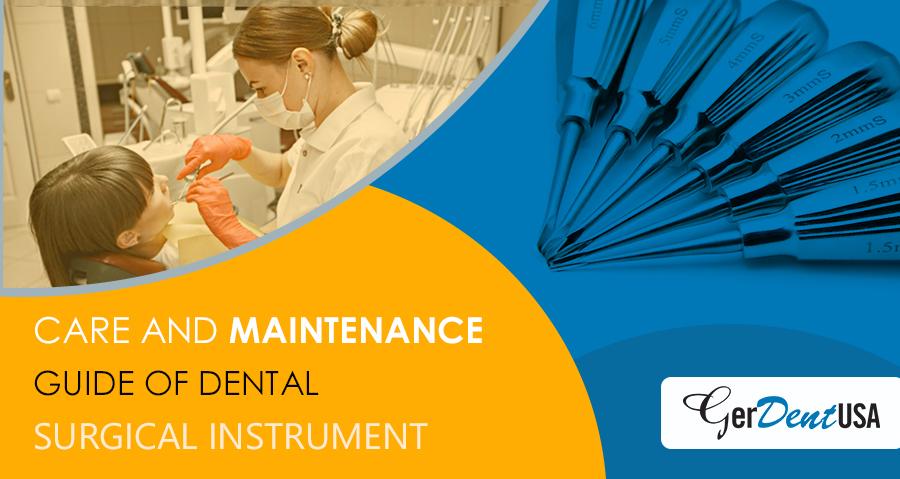A crucial underappreciated part of using your dentistry instrument is keeping it properly maintained. The care and maintenance with which you use your instrument are correspondent to the performance during dental implant surgeries. If the instruments are well-maintained, your surgery will go smoothly.
Let’s explore care and maintenance strategies in this dental surgical guide. These strategies and procedures are summarized from manufacturer recommendations for reprocessing and sterilization to ensure you get the instrument of the longest lifespan.
GerDentUSA Provides high quality surgical instruments and is used for the long-term if they are sterilized and cleaned properly after each dental practice. Following are reprocessing steps for maintenance purposes:
• Disinfection and cleaning
• Lubrication
• Sterilization
• Storing
Disinfection of Dental Surgical Instrument
For the disinfection, use only pH-neutral chemicals. Please avoid corrosive chemicals for disinfection. Disinfectants and detergents must be avoided if they contain acids (< pH 4), alkalines (> pH 9), organic solvents, iodophors, or phenols (derived chemicals/ petroleum-based), halogenic hydrocarbons, interhalogenic agents, bleach, peroxides, and strong oxidizing agents.
If the instrument is new, it must be lubricated, cleaned, and sterilized before use. Detergents with low pH may cause stains and pits on the instruments. High pH can interfere with the performance of dental surgical instruments. You can do manual cleaning and ultrasonic cleaning, and automatic cleaning.
Lubrication of Dental Surgical Instrument
All jointed, hinged, and box-locked instruments and tools with moving parts should be lubricated before sterilization. It is essential to pick the right lubricant that is water-soluble so as to permit steam to permeate for the sterilization process. Take care of some suggestions while lubricating your instruments. Lubricant must be free of silicone and mineral oil, because oil trap microorganisms and prevent proper sterilization.
Oil makes a film that has adverse effects on the instrument’s working. Synthetic and thermally stable lubricants having anti-corrosion agents should be preferred. You can also use automatic washers that have a lubrication cycle built-in feature. Before using such washers, be sure you are choosing the correct lubricant type in your washer.
Sterilization
After instruments have been disinfected, lubricated, and checked, they are ready for the sterilization process. Sterilization kills all microorganisms present on the surface of the instrument. After sterilization, the dentistry instruments are ready to use for dental implant surgery. Sterilization can be sterilized in the following ways:
• Autoclaving
• Dry Heat sterilization
• Cold sterilization
Storing
Instruments should be stored for future use, and this is an important part of reprocessing. Please take care of the recommendations in this dental surgical guide to avoid any contamination. All instruments should be completely dry before being stored. Keep the non-sterile and sterile instruments separate. Store the sterile instruments in a dust-free environment and away from any equipment or cleaning area. Do not open sterile packaging of instruments before already opened instruments are no longer sterile.
Important Note to Consider
It is significant to make sure all team members are properly trained in using the equipment and chemicals required to reprocess dental surgical instruments. All members should wear protective gear such as eye shields, non-puncture gloves, and gowns to protect themselves. All instruments must be handled with care in the complete reprocessing cycle to avoid personal damage and dental injury.
For all sterilization and cleaning processes, distilled water should be used. Salts, minerals, and high-chloride content in drinking and tap water may cause corrosion, discoloration, and pitting on instrument surfaces when dries. Distilled water is from any additives, minerals, and impurities; it will not tarnish the instrument's surface when used. These points are must be assured for the proper care and maintenance of the instruments, so dentists and healthcare professionals can use them for the longer term.

